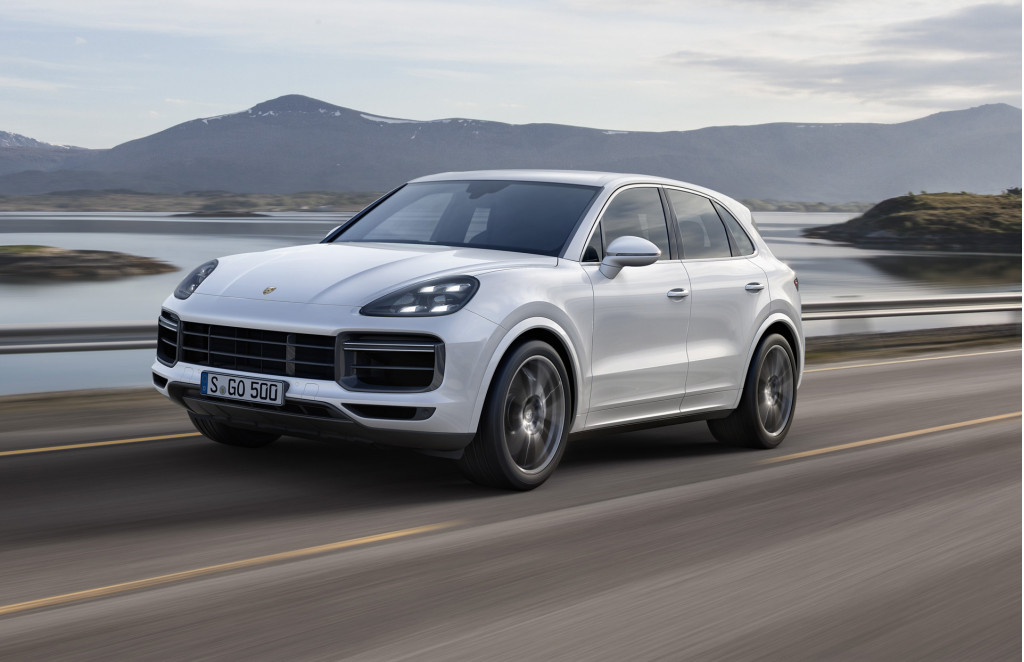Porsche has a new type of brake rotor called the Porsche Surface Coated Brake (PSCB) system.
Introduced on the current-generation Cayenne Turbo, PSCB uses tungsten-carbide coated rotors designed to provide greater performance, as well as some aesthetic benefits. It's all detailed in this Engineering Explained video.
You can spot a PSCB-equipped car because the rotors have a mirror-like finish. The tungsten-carbide coating also cuts down on brake dust (by 90%, according to Porsche), something Porsche tried to emphasize with the white calipers on the Cayenne Turbo Coupe seen in this video.
It's not all about looks, though. The rotors help reduce brake fade, and their service life is about 30% longer than alternatives, according to Porsche. Unlike conventional cast-iron rotors, they also won't rust.

2019 Porsche Cayenne Turbo
PSCB tries to split the different between cast-iron rotors and more expensive, but better performing, carbon-ceramic brakes. The rotors start out as regular cast-iron pieces that are then galvanized and coated with tungsten-carbide. The 0.1 millimeter coating is sprayed onto the rotors at supersonic speeds.
When that thin coating wears away, the entire rotor needs to be replaced. But Porsche claims the coating is so durable that PSCB rotors will still last longer than conventional rotors. Engineering Explained's Jason Fenske noted that brake pads tend to wear out more quickly than rotors anyway.
PSCB is standard on the Cayenne Turbo and Cayenne Turbo Coupe, and a $3,500 option on base Cayenne models. To put that in perspective, carbon-ceramic brakes are a $9,000 option on the Cayenne.
Fenske also got quotes on replacement costs (before labor) from a Porsche dealership. Standard iron rotors were $2,343.15, the PSCB rotors were $11,095.10, and carbon ceramics were $32,206.74. At that price, it might be better to just buy another car.